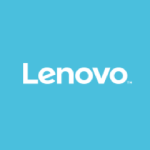What is our primary use case?
We use Pure Storage FlashArray for machine learning, storage, backups, and computing.
How has it helped my organization?
After installing Pure, the processes that would take 40 minutes to two hours to complete are now done in five minutes.
What is most valuable?
It is easy to install.
The stability and scalability are awesome.
The technical support is awesome as well.
Processes that used to take 40 minutes to two hours can be completed in five minutes.
Also, we can use more capacity and pay less.
What needs improvement?
I think the areas that they have been working on for quite some time are the CIFS and SMB Shares, that is, being able to mount them directly. I think they're on the right track.
One wish I have is that they will have a solution to help archive data to the cloud, that is, a Cloud Tiering Appliance.
For how long have I used the solution?
I've been working with it since 2016.
What do I think about the stability of the solution?
The stability of the solution is awesome too.
What do I think about the scalability of the solution?
The scalability of the solution is awesome. You have the opportunity to grow as needed.
The entire company uses this solution, so that would be close to 2100 people.
It is very extensively used, and we are continuing to expand.
How are customer service and support?
Technical support has been awesome. Sometimes, they've let us know about problems before we've even known that they were there.
Which solution did I use previously and why did I switch?
We previously used an EMC Array.
We switched because the response time went from a few hours to minutes.
The other piece was the amount of space that we were able to use because of the duplication and compression built in the unit. We can use more capacity and pay less.
How was the initial setup?
The initial setup was very straightforward. The deployment took a couple of hours.
We did a PoC with the product and checked to make sure that it worked in our environment.
We have a group of about 6 to 10 people managing the system.
What's my experience with pricing, setup cost, and licensing?
When we bought the unit, we bought per capacity. So, the licensing is per capacity, and the only thing that we have to buy every year or every three years is maintenance. Included in that maintenance is the upgrade of the controllers every three years at no cost to us.
Which other solutions did I evaluate?
We evaluated NetApp, Kaminario, EMC XtremIO, Tintri, and Nutanix.
We used scalability, support, the evergreen model, the cost per terabyte or per gigabyte, and the footprint as the factors for comparison. We also looked at how they are able to provide support globally, not only here in the US but also overseas.
What other advice do I have?
I would recommend that you do a PoC to ensure that it works according to the needs of the company, and that will help prevent a lot of headaches.
I think it's a very complete solution at this point, and I would rate it at ten on a scale from one to ten.
Which deployment model are you using for this solution?
Private Cloud
If public cloud, private cloud, or hybrid cloud, which cloud provider do you use?
Amazon Web Services (AWS)
Disclosure: I am a real user, and this review is based on my own experience and opinions.













